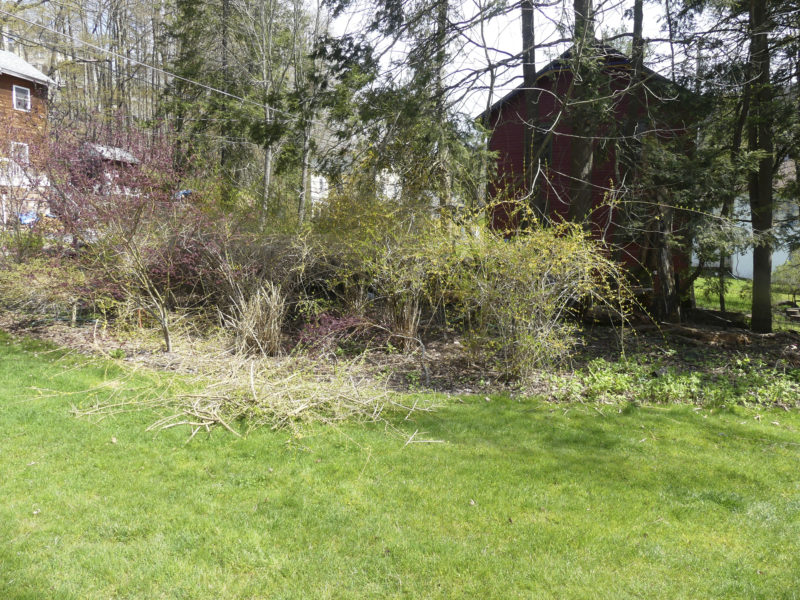

One of the agribusiness areas that are doing well as a result of the COVID-19 pandemic are CSAs, or Community Supported Agriculture. These are local farms, usually organic, that you buy a subscription to, and each week they deliver a portion of their produce to you. Some have been able to set up venues where you can order online late in the week, then drive through on a Saturday and pick up your order.
And while CSAs have been busy over the years, as we try to support local agriculture, many are now reporting that their projected harvests for this year are already sold out. Many will put you on a waiting list, and some will simply tell you they are not accepting new members.
This is a terrific way to support local, sustainable farms and get fresh produce. The offerings can be limited, but you usually know in advance what’s going to be in each week’s distribution.
You can ask at local garden centers what CSAs are available in your area, or you can go online and search “Long Island CSA” for a list of 10 or more on the North and South Forks. (If you live in the New York City area, there are upstate CSAs that deliver there weekly as well.)
Some garden centers and retailers are reporting shortages of vegetable plants due to the very high demand. It’s too late to start many of the long-season vegetables, unless you are going to direct seed right into your garden.
Now is the time to seed melons and squash, and by Memorial Day weekend you can seed all of the long-season crops and get peppers and eggplants into the ground. It’s also time to make sure you have seeds for your late veggie garden that you’ll sow in July and August. This includes salad greens, carrots, radishes, Brussels sprouts and beets, along with others.
Have a forsythia hedge or bush that hasn’t been shaped or trimmed in years? I just did a trimming on a few at the edge of our property that I’ve trimmed each year, but they haven’t been truly renovated in over 15 years.
These shrubs are nearly weeds, and they recover very quickly from shearing and shaping. Don’t be timid — but don’t wait more than another week or so, as next year’s flower buds will grow on this summer’s new growth. Clean up when you’re done, also, since young and green cuttings easily will root again in wet weather.
I was all set to plant a sunflower garden where we took down a large sugar maple last fall. I haven’t found a suitable replacement yet, and the 12-foot-diameter void in the lawn is begging for planting. I thought a sunflower garden with various colors and heights would look great as a late-summer folly.
I bought the seed, then had nightmares. My garden nemeses are chipmunks who love to snack on my lily bulbs late in the summer. They also adore sunflower seeds. The chipmunks and I have had a pretty good truce, as they go over to neighbor Nancy’s and raid her sunflower bird feeders and avoid my property.
Now, my sunflower garden is on a short pause while I think this through. The chipmunks are just too busy now for further negotiations.
Shrub hibiscus, or the rose of Sharon (Hibiscus syriacus), generally need a light trimming every spring, as they flower on new wood. They can easily be shaped or lightly pruned as soon as you see where the new growth is beginning for this season. Prune at or below this new growth. Try to prune at “breaks,” where the growth is pointing out or away from the center of the plant, so flowering takes place on the outside and not the inside, where the flowers may be hidden.
At the first sign of Japanese beetles at the end of June, you can spray them in the cool of the morning with neem oil to deter the beetle feeding.
When planting container-grown plants, and that includes annuals, perennials, shrubs and trees, make sure the plant’s roots are loosened up before you plant. If not, the roots will never expand, and many will simply fail as they strangle themselves and the roots can’t expand to take up water and nutrient.
This can be done with your fingers, but in some cases you may have to use a knife. Some roots may be sacrificed, but the plant will quickly recover and thrive.
I expect a banner summer for slugs. Start your treatments and scouting now, before they begin to reproduce and take over. There are organic as well as chemical treatments and a number of home remedies that work to some degree. For beer drinkers, they are suckers for a pie plate sunken in the soil and filled with beer. For caffeine addicts, coffee grounds are a good repellent. Copper strips also work. Lots of options. See what works for you.
It’s really important this year to keep successional planting and efficient space use in mind in the veggie garden. A number of veggies can be sown every 10 days for successive crops and a long season. When early crops like radishes and peas are done, use that space for a later-season crop like beets and carrots.
Still short on space? Use containers, but use varieties suited for container culture.
Keep growing!
 More Posts from Andrew Messinger
More Posts from Andrew Messinger